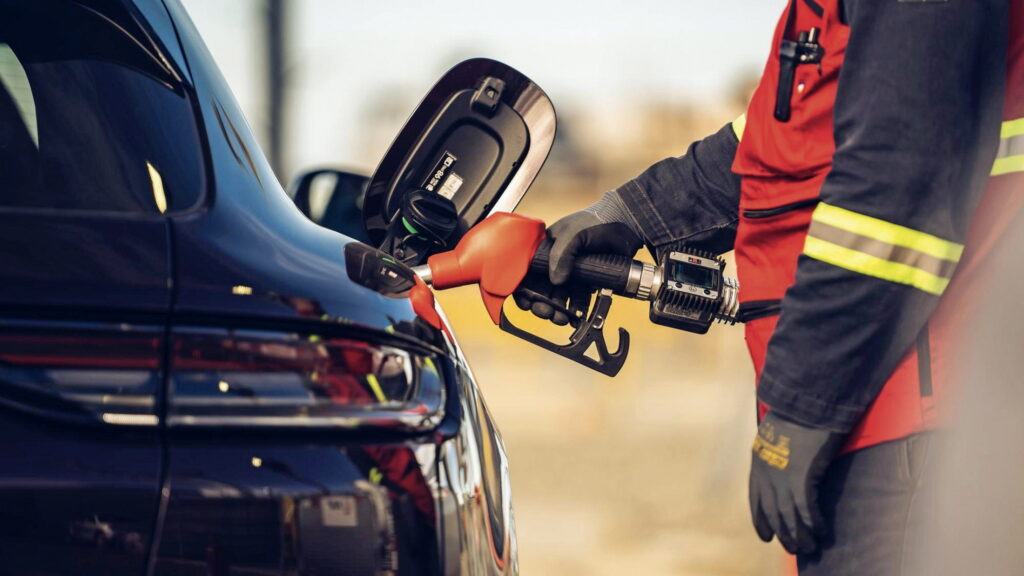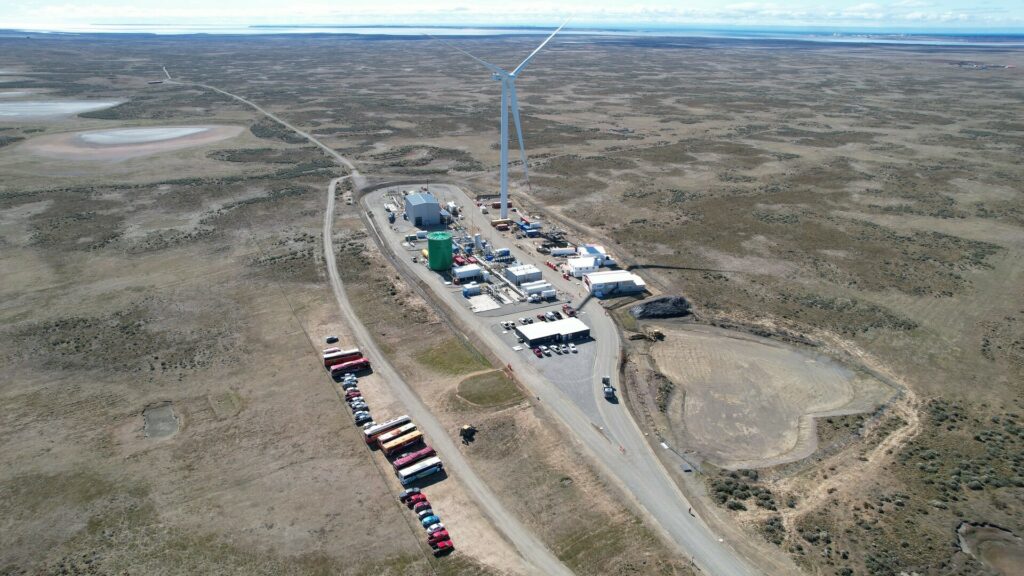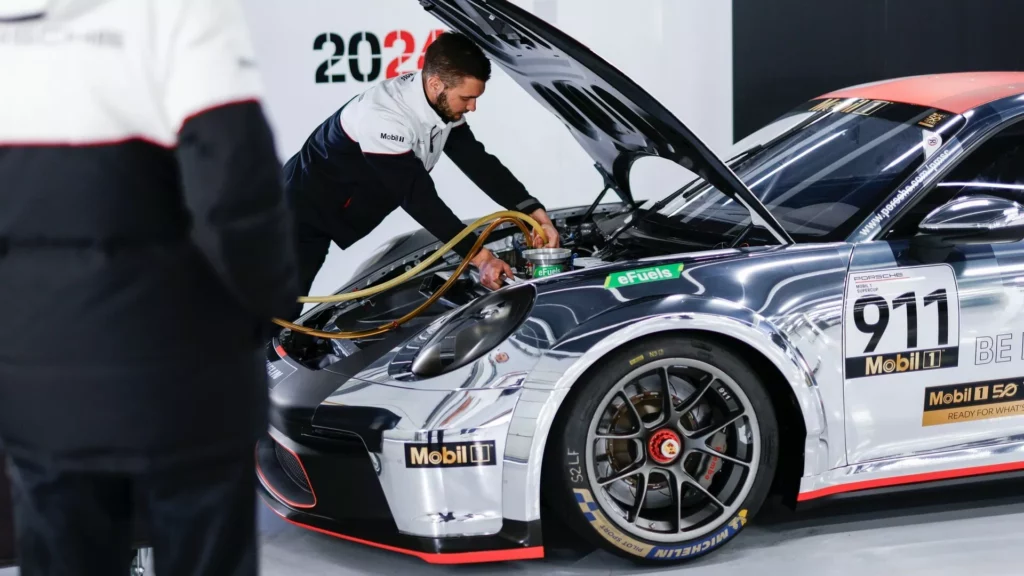- Porsche’s e-fuels initiative seeks to keep ICE vehicles in Europe running beyond 2035.
- It advocates gradually replacing fossil fuels with synthetic e-fuels to reduce emissions.
- Other automakers are encouraged to transition gradually to more sustainable fuel mixtures.
Porsche believes the use of synthetic e-fuels could become more widespread and that they will serve an important role in helping the environment by powering both existing and new ICE vehicles.
The German car manufacturer is currently operating an e-fuel production facility in Chile that’s powered by renewable energy. This site produces e-fuel used in the Porsche Supercup race series and can produce fuel for older models. Indeed, it was an attempt to keep older ICE models on the roads for longer that initially prompted Porsche to build the e-fuel plant.
Read: Porsche’s Supercup Series To Run On Synthetic eFuels This Year
Now, as more politicians and governments realize they cannot only push EVs, Porsche research and development boss Michael Steiner sees the application for synthetic fuels growing.
“Since we started this project, more and more people – customers and politicians – have realized you cannot only push e-mobility,” he told Autocar. “It’s the main track, but we have to think about the huge, huge existing fleet of ICE cars, which is still growing. Everybody has to substitute new cars step by step with battery-electric cars, but we have to take care how we could substitute all that fossil energy that we put into cars, ships, planes and so on.”
Leiters doesn’t expect the ICE industry as a whole to suddenly switch to e-fuels. Instead, he thinks “we could, little by little, gallon by gallon, substitute fossil fuel with e-fuel by mixing a blend. The key is how many tonnes [of fossil fuel] do you substitute, not which way. We could start like we did with biofuels by blending it in. The important thing is to cut fossil fuel use.”

“We’re getting more and more support,” he added. “It’s still a long way to get the big wheel moving, but if you could push that – and we strongly want to push that – by the end of the decade, there could be a significant share of e-fuel in use.”
Porsche’s commitment to e-fuels is one of the main reasons why the European Commission has softened its stance on ICE vehicles. Initially, the sale of new petrol and diesel cars was to be banned across the EU after 2035 but an exemption has been crafted to allow for vehicles powered by e-fuels to continue to be sold after this date.




